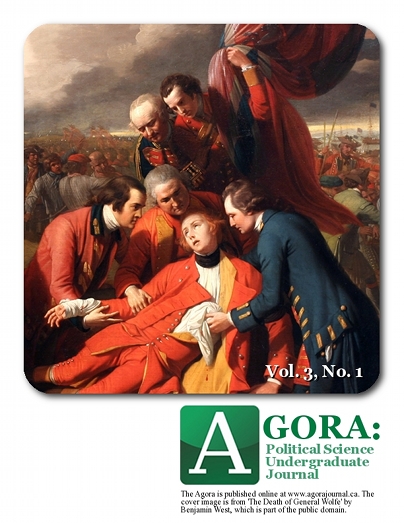A Contribution to Rupert Taylor’s Critique of Consociationalism in Northern Ireland
DOI:
https://doi.org/10.29173/agora19040Keywords:
Ethnic Conflict, Irish Catholics, Protestants, Rupert TaylorAbstract
Political scientists John McGarry and Brendan O’Leary’s liberal consociational model argues that a power-sharing political settlement can be effective in resolving ethnic conflict. Political scientist Rupert Taylor, by contrast, argues against McGarry and O’Leary’s model, claiming that the liberal consociational arrangement does not address the underlying sectarianism which binds ethnic communities into two reified groups, reinforcing the subordination both between and within them. Specifically in terms of Northern Ireland, Taylor cites socio-economic deprivation as an instance of sectarianism; Irish Catholics are consistently found in subaltern, disadvantaged positions relative to their Protestant peers in terms of “rights, opportunities, and resources.” By integrating economy-centred analytical approaches, this essay demonstrates that the economic dimension (particularly capital and its resulting class inequalities) has been structurally implicated in the Northern Ireland conflict, continually reinventing itself throughout history.Downloads
Published
2013-02-21
Issue
Section
Articles
License
Authors who publish with this journal agree to the following terms:
- Authors retain copyright and grant the journal right of first publication with the work simultaneously licensed under a Creative Commons Attribution License that allows others to share the work with an acknowledgement of the work's authorship and initial publication in this journal.
- Authors are able to enter into separate, additional contractual arrangements for the non-exclusive distribution of the journal's published version of the work (e.g., post it to an institutional repository or publish it in a book), with an acknowledgement of its initial publication in this journal.
- Authors are permitted and encouraged to post their work online (e.g., in institutional repositories or on their website) prior to and during the submission process, as it can lead to productive exchanges, as well as earlier and greater citation of published work.


